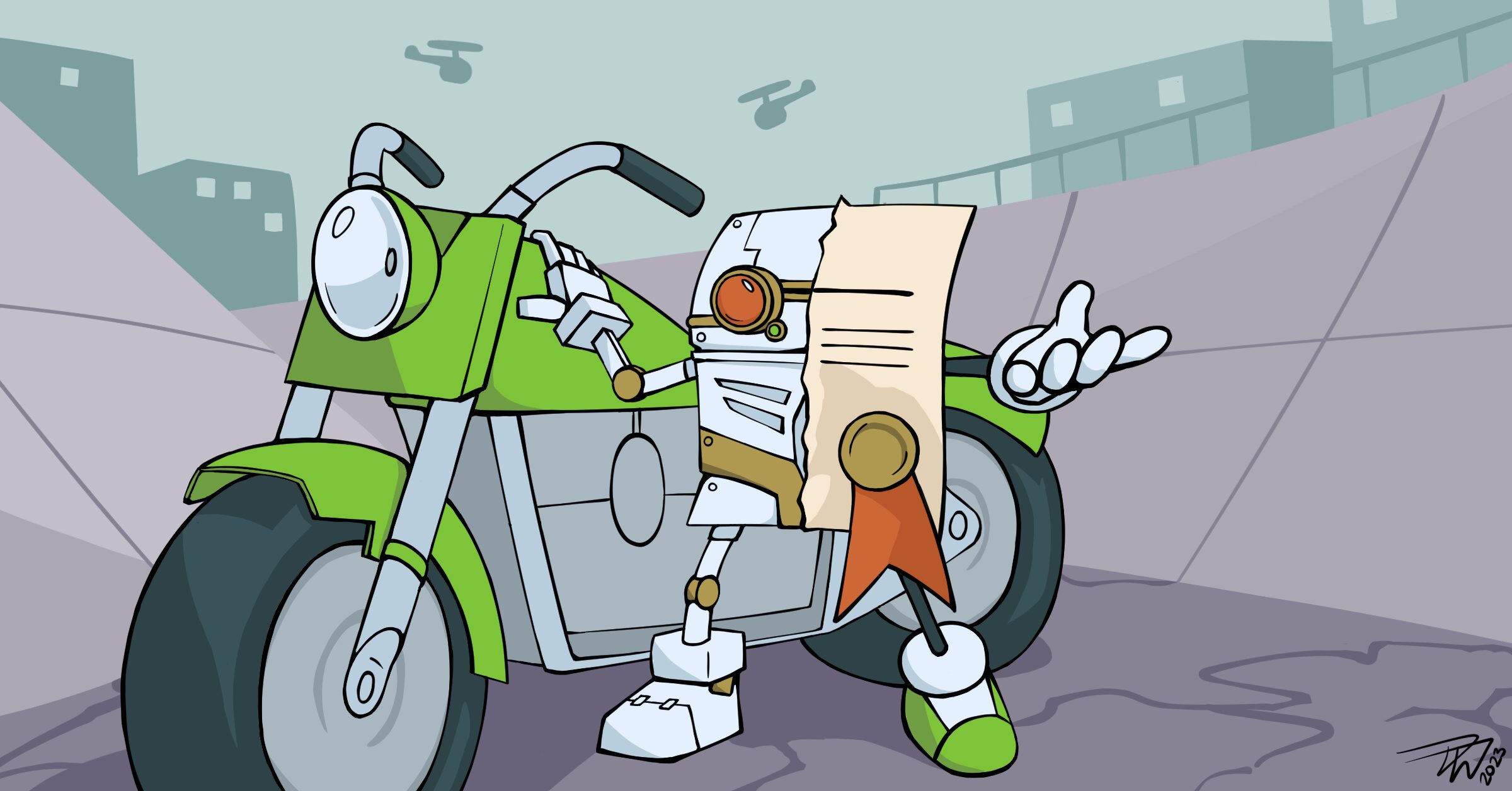For decades, conventional wisdom had most of us believing that automation and the inevitable rise of the machines would upend blue-collar industries first. But then AI had something to say about all of that. From passing medical licensing exams to writing code to even acing the Uniform Bar Examination, AI has become society’s latest (and perhaps most capable!) change agent in the professional workplace. At an astonishing pace, it’s erasing all assumptions as to what industries will be most impacted. With the most recent advancements centering around the understanding and generation of text and images – the core ingredients to patents – it’s becoming abundantly clear that patent practitioners and inventors are far from immune to AI’s effects and reach. But is it all just a ticking time bomb of despair for the professional IP industry? Or could there be some hope for fixing the problems that plague the system and perhaps even an innovation renaissance born from the quantum leaps being taken by this new wave of technology? It’s time we had a talk about this.
Episode Overview: Current Tools, Future Solutions
In this month’s episode, Dr. David Jackrel and Dr. Ashley Sloat lead a two-part discussion with our all-star panel that begins with a deep dive into the present state of AI patent tools and then moves on to an exploration of how these tools could eventually provide solutions for many of the problems plaguing the industry. The episode explores:
- ChatGPT-4.0 vs. professionals on core competencies
- Why AI is evolving so rapidly
- AI problems and hallucinations
- AI and public disclosure risk
- AI implications for inventorship
- The current state of AI-assisted patent searching, proofreading, drafting (rule and LLM-based), and prosecution tools
- AI’s potential future role in the patent system for fixing issues with the PTAB, search quality, and the unsustainable bar
AI is Eating the World
Our news feeds are overrun with stories of how AI is profoundly reshaping the world at a breakneck pace and achieving results that were only recently the mere dreams (or perhaps threats depending on who you ask) of science fiction. Experts are asserting that AI’s impact will be bigger than the Industrial Revolution and that we could be less than five years from the singularity – the moment when AI can reason better than us and is no longer under human control.
But where are we now? These large language model neural networks like ChatGPT, which predict the next most likely word based on probability, are achieving remarkable results in some of the most complex human contexts:
- Core human competencies with tasks like speech recognition, handwriting recognition, image recognition, reading comprehension, and language understanding were, if not computationally impossible, certainly well below the benchmarks of human performance only as recently as the onset of the pandemic. AI is now surpassing human performance in many of the core competencies and several of the trend lines remain vertical.
- Medicine. Open AI’s ChatGPT passed all three parts of the US medical licensing exam – and did so within a comfortable range.
- Software. OpenAI has been used to create 3D games by prompters with no knowledge of game development and a functioning website from a messy notepad sketch. GPT-4 can now write code in all major programming languages.
- Law. Not only did GPT-4 pass the bar exam, but it did so scoring in the 90th percentile, passing all sections of the UBE with an accuracy rate of 74.5% – 9.5% higher than average human aspiring attorneys, and exceeding Arizona’s minimum passing score, which is the highest threshold among the 36 states and jurisdictions using the bar exam.
The pace at which this is happening and the trajectory of where it is going are staggering – happening far more quickly than our own wetware and dated operating systems can possibly comprehend.
Not Perfect…Yet
But for all the hype, it’s still far from perfect. Beyond highly documented issues with desires to hack computers and break up marriages, AI also presently suffers from a phenomenon known as hallucination. The term is often used to describe instances where an AI system produces content that seems realistic but is entirely fabricated. For example, generating text that seems coherent and contextually appropriate but is entirely fictional. This became a real-world problem for a couple of New York attorneys this past June, who submitted a legal brief that included six fictitious case citations generated by ChatGPT.
So, while there are still some glitches in the matrix, it’s important not to get complacent and overlook the capabilities when considering the pace of the evolution. As mentioned, ChatGPT-4 passed the bar in the 90th percentile. Its predecessor version, 3.5, only scored in the 5th percentile. That’s one year and a half tick of a version to go from failing to top of the class. The more difficult consideration becomes not if but when to embrace these tools, especially given the complex, nuanced, high-stakes nature of patents.
AI Patent Tools State of the Union
There are many AI-assisted software tools already available for practitioners. Part one of the panel discussion gives a 30,000 ft view of the state of AI tools for IP and gives a glimpse into how these tools can, will, and in some cases already are, being used. The group discusses personal experiences with and insights into optimizing the use of AI-assisted patent searching, proofreading, drafting (rule and LLM-based), and prosecution tools.
Can AI Save the Patent System?
We’ve spent a fair amount of airtime discussing the existential threats facing the patent system and the dire need for reform. Proposed legislative human solutions tend to get complex, messy, sometimes contentious, and always bogged down in the political machinery. But innovation doesn’t rest. Void of political solutions, what if we could leverage AI-based solutions to mitigate against many of the circumstances that necessitate reform?

Illustration: Declan Wrede
In the second part of the panel discussion, our group explores how AI could augment the patent system and those whose services support it, how search quality could be improved, and how a time-traveling PHOSITA armed with the time-stamped corpus of human knowledge could solve problems with invalidations around novelty, non-obviousness, and enablement.
Discussion Panel
Ashley and David are joined today by our always exceptional group of experts including:
- Kristen Hansen, Patent Strategist at Aurora
- Ty Davis, Patent Strategy Associate at Aurora
- Josh Sloat, Executive Technology Advisor at Aurora
Mossoff Minute: AI and Inventorship
In this month’s Mossoff Minute, Professor Adam Mossoff discusses the patentability of AI-generated works and inventions. We’re also publishing excerpts as short-form videos on Instagram Reels, YouTube Shorts, and TikTok.
Related Listening and Reading
To further explore the topics discussed, see the following past episodes and resources:
- Patent Wars – Innovators, Revolutionaries, and the Race to Reform. Discussions around the problems plaguing patenting and possible solutions for reform.
- Jack Daniels, Mickey Mouse, and Andy Warhol Walk into a Bar. A pop culture-fueled look at brand protection of copyrights and trademarks and implications of AI for digital humans and online content.
- Patent Searching: Sleuthing Your Way to Stronger Patents. Expert insights into patent searching and the importance of understanding the state of the art.
- Will AI Save or Terminate the Patent System? Patsnap Frontier Keynote Address by Ashley Sloat, looking at both utopian and dystopian outcomes for the patent system based on the decisions we start making now about AI.
- Top 3 Inventor Mistakes. Discusses the risks of publicly disclosing your invention before you have filed a patent application.
- USPTO Inventorship Guidance for AI-Assisted Inventions. Recently published information on how the PTO views the use of AI in the inventive process.

![[IPWatchdog Logo]](https://ipwatchdog.com/wp-content/themes/IPWatchdog%20-%202023/assets/images/temp/logo-small@2x.png)



![[Advertisement]](https://ipwatchdog.com/wp-content/uploads/2024/04/UnitedLex-May-2-2024-sidebar-700x500-1.jpg)
![[Advertisement]](https://ipwatchdog.com/wp-content/uploads/2024/04/Artificial-Intelligence-2024-REPLAY-sidebar-700x500-corrected.jpg)
![[Advertisement]](https://ipwatchdog.com/wp-content/uploads/2024/04/Patent-Litigation-Masters-2024-sidebar-700x500-1.jpg)

![[Advertisement]](https://ipwatchdog.com/wp-content/uploads/2021/12/WEBINAR-336-x-280-px.png)
![[Advertisement]](https://ipwatchdog.com/wp-content/uploads/2021/12/2021-Patent-Practice-on-Demand-recorded-Feb-2021-336-x-280.jpg)
![[Advertisement]](https://ipwatchdog.com/wp-content/uploads/2021/12/Ad-4-The-Invent-Patent-System™.png)






Join the Discussion
No comments yet. Add my comment.
Add Comment